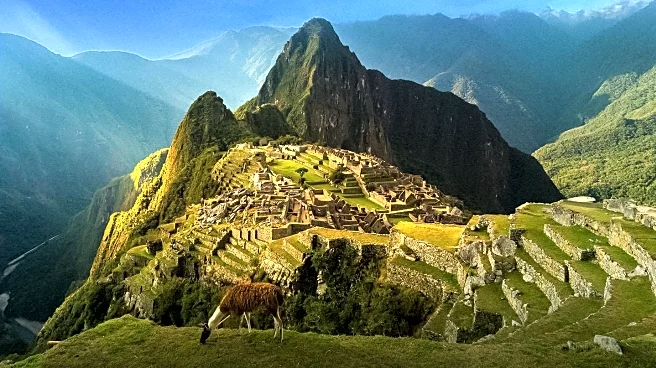What's Happening?
Protests in Peru have left nearly 1,000 tourists stranded in Aguas Calientes, the gateway to Machu Picchu. The demonstrations began after the contract of Consettur, the company operating buses to the ancient site, expired, leading to the commissioning of a new bus company. Protesters have expressed concerns over the transparency and fairness of the process, with some blocking railway tracks with rocks. The Peruvian government has been evacuating tourists using available land and rail routes. The U.S. Embassy in Peru has advised American tourists to avoid large gatherings and has provided guidance for those affected.
Why It's Important?
The protests highlight the challenges of managing tourism and local interests in areas of significant cultural and economic importance. Machu Picchu is a major tourist destination, and disruptions can have substantial economic impacts on the local community and the broader Peruvian economy. The situation underscores the need for transparent and fair processes in public contracts to prevent unrest. For international tourists, the incident serves as a reminder of the potential risks associated with travel to politically unstable regions. The U.S. Embassy's involvement indicates the importance of safeguarding citizens abroad during such events.
What's Next?
Efforts to resolve the protests and restore normalcy are likely to continue, with the Peruvian government seeking to negotiate with the protesters. The outcome of these negotiations could set a precedent for future public contract disputes in the region. Tourism stakeholders may push for more robust contingency plans to handle similar situations in the future. The international community, particularly countries with citizens affected, may monitor the situation closely, potentially influencing diplomatic relations with Peru.










